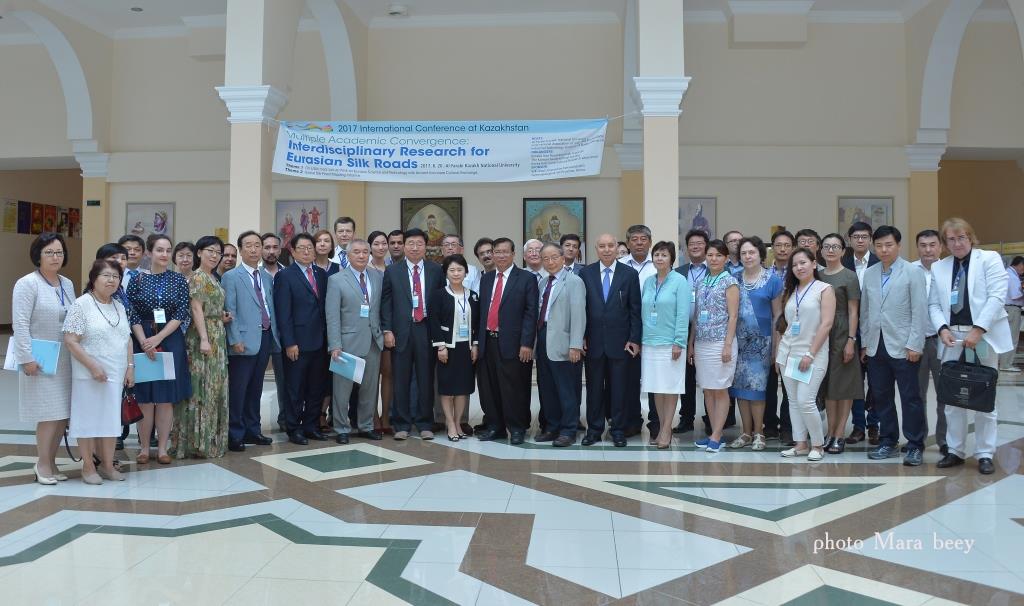Great Silk Road
Views: 3113

On June 20, 2017, an international conference dedicated to the Great Silk Road was held in the al-Farabi Kazakh National University, which united an international team of experts in the field of research of this cultural and geographical segment of the world history.
The organizers were al-Farabi Kazakh National University, the Korean Association for the Study of the Early Iron Age; Korean Geographical Society, Eurasian Railway Research Center, with support of the Global Network of Silk Road Universities, North Gyeongsang Province.
The first vice-rector of the al-Farabi Kazakh National University, Academician of the National Academy of Sciences of the Republic of Kazakhstan, M.M.Burkitbayev, Dean of the Faculty of Geography and Environmental Sciences Professor V.G. Salnikov, Secretary-General of the League of Universities of the South Korean Silk Road Hwang Sondon, President of the Silk Road Association of Korea, Professor Herman Kim addressed the conference participants with a welcoming speech. They stressed the importance of holding such conferences, where scientists from different countries can share their research on the modern development of the Great Silk Road, which will promote mutual understanding and mutual trust between people belonging to different nationalities and confessions, and this will serve as a guarantee of peace and security in our common home, on the Earth.
During the period of the international conference, there were two sections, where the moderators were the head of the department. Department of Unesco for Sustainable Development of al-Farabi KazNU, professor R.V. Yashchenko and president of the Silk Road Association, Professor Herman Kim.
During the first section, scientists from South Korea presented their research on cultural exchange on the Silk Road in Eurasia in the era of the early Iron Age, and presented their vision for standardizing the Silk Road map, due to their inconsistencies in different countries.
In turn, scientists from Kazakhstan, Uzbekistan, Tajikistan, Kyrgyzstan, Vietnam focused their presentations on the passage of the Silk Road's geographical belt, on the need to expand scientific research and innovative approaches in studying many aspects of cooperation.
Active participation in this conference was hosted by a student from the University of Paris - Diderot Victoria Bachelet, who conducts research in the field of creating maps based on remote sensing data on the basis of the Department of Cartography and Geoinformatics of the Faculty of Geography and Environmental Sciences.
In the second section of the "Interdisciplinary study of the Eurasian Silk Road", which took place in the framework of the panel discussion, two themes were presented: "Cultural Exchange on the Silk Road in Eurasia of the Early Iron Age" and the Global Silk Road Mapping Initiatives, which discussed the composition of the expedition team for carrying out research on the Eurasian Railways and their sponsors, as well as a plan for the standardization of the Silk Road map.
Within the framework of the conference, it was decided to organize a seminar in Korea in September this year, where it is planned to gather all representatives of universities and scholars dealing with the Silk Road issue in order to call for continued joint efforts to draw up maps in the Euro-Asian area through the implementation of major projects.
The Conference participants expressed their gratitude to the Kazakh National University for their support in organizing the conference and for the hospitality provided.








